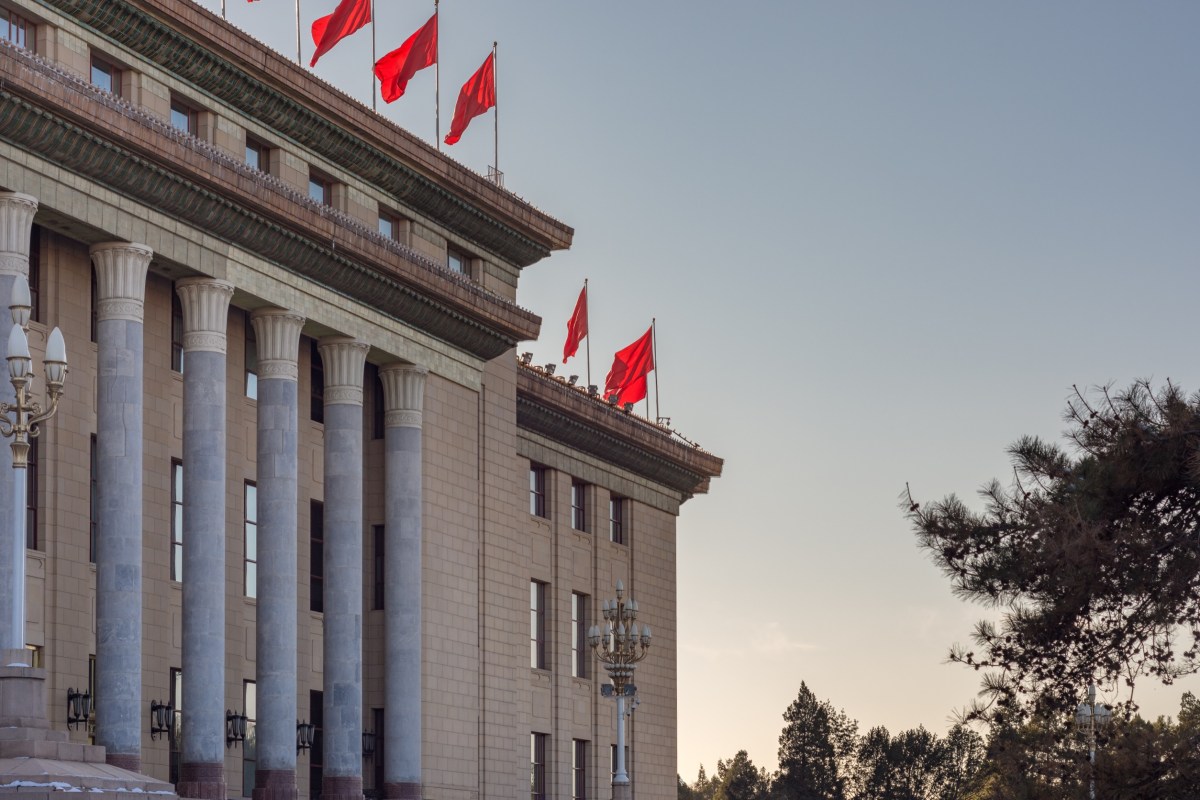As China and its economy regain momentum after three years of strict Covid control policies, the country’s top lawmakers and political leaders are meeting in Beijing this week to discuss the country’s governance, economy, budget, and various key issues. The meeting is part of a week-long annual gathering known as the “two sessions,” or lianghui.
Increasing domestic demand is a top priority for the government in 2023. In 2022, China failed to reach the 5.5% GDP growth rate target it set last year (China grew 3% instead). For 2023, China has set an annual GDP growth target of 5% and hopes that its people will spend more to support the country’s economy.
Much of this year’s growth plan is centered around stimulating consumer spending. Particularly in areas related to technology, the country is relying on people to make more big-ticket purchases like cars, and spend more on various shopping platforms, while building more network infrastructure this year. These include continuing to increase the steady growth of new energy vehicles and charging stations, supporting newer models of e-commerce, building 5G network infrastructure in smaller cities, and constructing national data centers in planned regions.
Buy more EVs
China will continue to push the adoption of electric vehicles as part of its stimulus package to boost consumption and to “enhance its leadership position” in the new energy vehicle industry, policymakers said in this year’s annual government work report. It will also promote the wider use of battery swap technology and continue to support the battery industry.
The two sessions is also an opportunity for enterprise leaders (both private and state-owned) to present policy recommendations to the country’s top political and advisory bodies.
Most proposals from leaders of domestic auto companies have echoed the government line. Feng Xingya, general manager of GAC, a manufacturing partner of Toyota and Honda in China, urged the government to roll out supportive policies to reduce the construction cost of battery swap facilities and push for a standard battery design among different manufacturers. CATL chairman Zeng Yuqun called for the establishment of a quality assessment framework to pave the way for the spread of lithium-ion batteries for grid energy storage.
Lei Jun, CEO of Xiaomi and also a delegate to China’s top legislative body the National People’s Congress (NPC), suggested that China issue data security standards for automobiles and promote data sharing among companies for intelligent connected vehicles. In addition, He Xiaopeng, CEO of Xpeng Motors, called for new legislation to clarify liability in traffic accidents involving autonomous driving cars.
Shop more online
Expanding consumption is key to China’s 5% economic growth this year, as the country tries to recover after stringent Covid-19 controls slowed economic growth. The country’s economic planner sees huge potential for e-commerce platforms as drivers of growth.
Strong export growth in the first half of 2022 has boosted China this year, with the country’s total trade of goods reaching a record high of RMB 42.07 trillion ($6 trillion). In particular, cross-border e-commerce exports grew by 11.7%, reaching RMB 1.55 trillion in 2022, reflecting the rise of overseas retail as a major component of China’s export trade. This year, the government pledged more support for cross-border e-commerce and overseas warehouse development in the annual report.
For the domestic market, Chinese authorities vowed to guide the development of new models such as live commerce and on-demand retail, and lead the sector towards high-quality growth.
Wang Yinxiang, an NPC deligate from Cao county, a garment and coffin manufacturing hub in eastern Shandong province, found in her search that e-commerce in her rural county has helped increase the average lifespan of people in the region. The county is known for being a Taobao village (where at least 50 households own shops on Alibaba’s e-commerce platform Taobao).
Build more 5G, data centers, and other infrastructure
This year, China will continue to upgrade to modern infrastructure systems such as 5G, data centers, and the Internet of Things. Specifically, China will focus on expanding internet networks in small- and medium-sized cities. The government aims to accelerate the development of 5G and broadband networks, and achieve greater integration of cloud networks. In addition, the country will continue the expansion of data centers and data hubs planned under the national data center project the “East-to-West Computing Capacity Diversion Project,” aiming to move more data processing from the country’s prosperous but land-scarce eastern regions to the country’s less-developed but sparse western regions.
In addition to networking and data infrastructure projects, the country also said in its work report that it plans to support the construction of smart highways, civilian space infrastructure, and a commercial space launch center on the southern island of Hainan.
Voice recognition company iFlytek CEO Liu Qingfeng proposed that China should accelerate the construction of artificial intelligence models to enjoy the AI boom. Liu pointed out that while Chinese institutions and enterprises have published a series of large-scale models, the intelligence level of the large-scale models is still significantly lower than OpenAI’s ChatGPT. He asked China to accelerate the development of AI.

